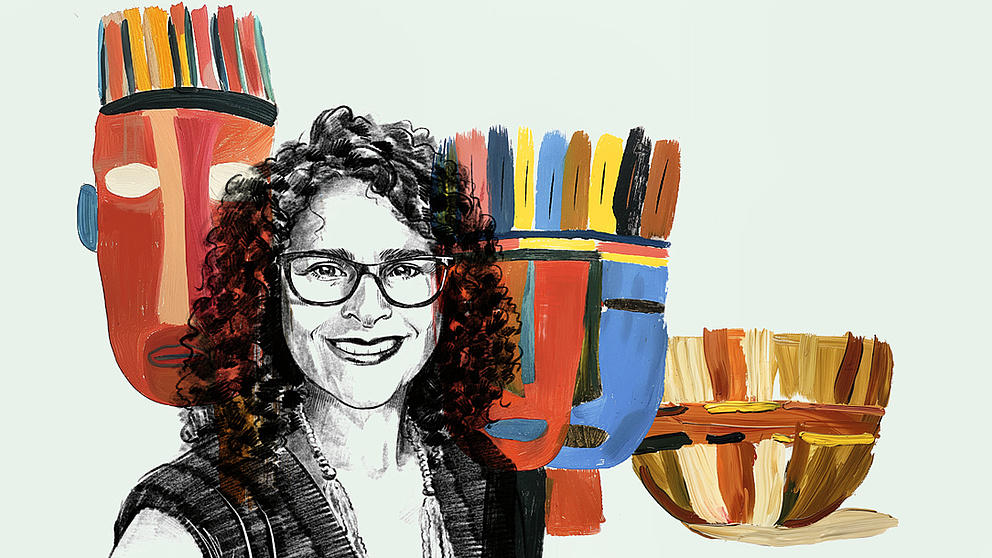Jump to the content
- {{#headlines}}
- {{title}} {{/headlines}}

Dr. María Julia Ochoa Jiménez
Dr María Julia Ochoa Jiménez is a professor at the Universidad Loyola Andalucia in Spain. From 2021 to 2023, she was a Humboldt Research Fellow at the Institute for Archeology and Cultural Anthropology at the University of Bonn, working on the rights of Indigenous peoples in the context of private international law.
“The normative systems of Indigenous peoples are not on an equal footing with the national law of individual states. This leads to complex legal situations, also with regard to the international restitution of cultural objects. From a traditional, very strict legal perspective, it can be considered that the owner of the objects is the state of origin and not the Indigenous group,” explains María Julia Ochoa Jiménez. As a rule, in legal interactions that cross national borders, states only negotiate with states. Local Indigenous groups are not usually directly involved in such negotiations.
“It would be ideal to have national laws that clearly declare Indigenous peoples the owners of the cultural objects they have created,” says the researcher. “However, beyond focusing on legal issues around ownership, my proposal is that, when making decisions about the final destiny of the Indigenous cultural objects, national authorities in states of origin should be obliged by law to respect and apply the normative systems of Indigenous peoples, which involve their traditional worldviews.”

